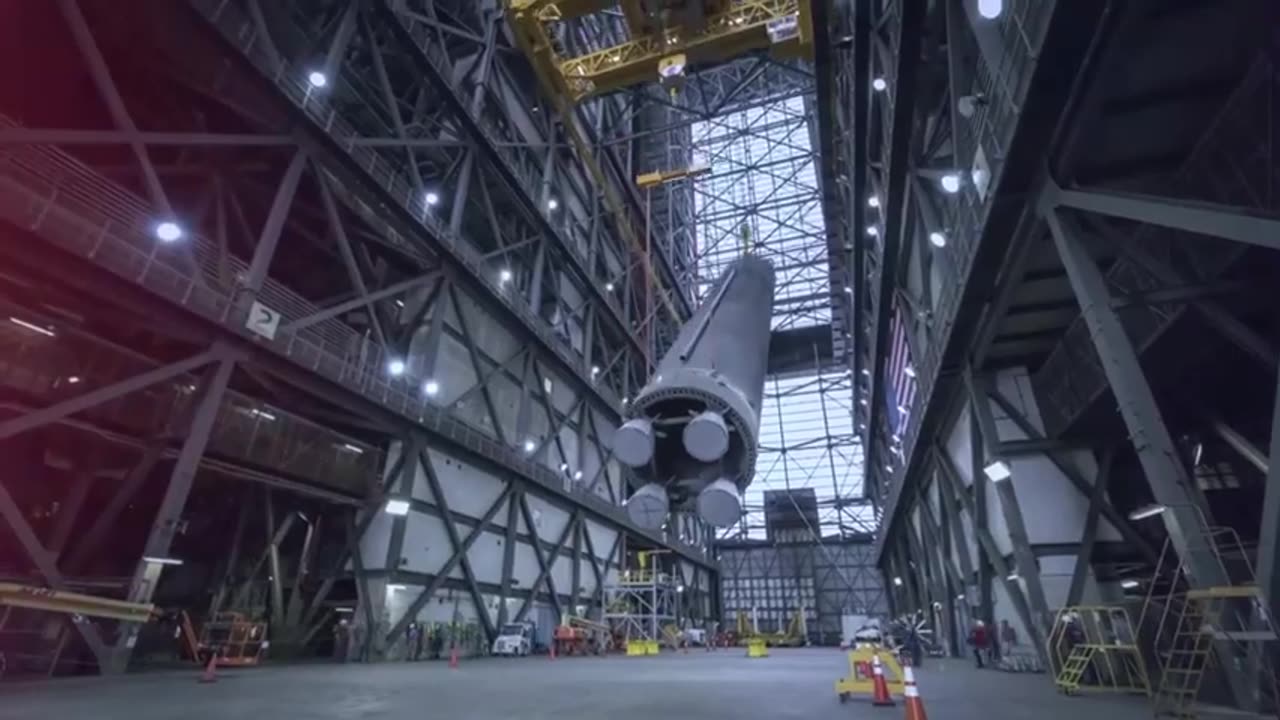Premium Only Content

SpaceX Live - Russia Is Testing A New Nuclear Spaceship To Beat SpaceX & Elon Musk!
SpaceX Live
Sept 13, 2023
Russia Is Testing A New Nuclear Spaceship To Beat SpaceX & Elon Musk!
https://www.youtube.com/watch?v=C8embxSA2Fc
Russia Is Testing A New Nuclear Spaceship To Beat SpaceX & Elon Musk!
A new and fascinating chapter in the ever-evolving field of space exploration is taking shape, one that puts Russia at the vanguard of innovation with a risky project that seeks to compete withSpaceX and its visionary inventor, Elon Musk, in terms of ambition. Russia challenges the limits of possibility with a nuclear-powered spaceship, giving the story a thrilling twist as the cosmos calls humanity to travel farther and dream larger. Russia's bold move in the battle to reimagine interplanetary flight raises the intriguing question: Will their ground-breaking idea surpass the inventiveness of SpaceX and Elon Musk?
In recent times, Russia's historical significance as a leader in the aerospace sector has come under scrutiny. This phenomenon has given rise to discussions surrounding a new and remarkable nuclear-powered spacecraft that Russia is actively developing. This spacecraft has the potential to stand as a formidable competitor to the endeavors of Elon Musk's SpaceX. At the heart of this unfolding narrative is a host who specializes in space-related topics, with a particular focus on Elon Musk's pioneering work. Through the host's insights, the audience is introduced to this novel spacecraft development and its potential implications for the realm of space exploration.
Elon Musk, the visionary behind SpaceX, has carved his name in history through a series of groundbreaking projects that have captured the world's attention. Among his most remarkable endeavors is the development of the Starship vehicle. This technological marvel is designed to bean entirely reusable system, an innovation that has the potential to revolutionize space travel. TheStarship's purpose goes beyond simply ferrying cargo or astronauts—it's engineered to transport both people and payload to destinations as distant and awe-inspiring as Mars. This ambitious objective of Musk and SpaceX is undeniably grand in scale, positioning humanity on the cusp of a new era in space exploration. At the core of SpaceX's mission is an overarching aspiration: to make human life multi-planetary. This aspiration emerges from an acute awareness of the existential threats that our species faces. Elon Musk's vision extends beyond Earth's confines, seeking to establish settlements on other planets as a form of insurance against cataclysmic events. The concept is rooted in the recognition that relying solely on our home planet is inherently risky. By expanding to other celestial bodies, such as Mars, humans can diversify their presence, ensuring that potential disasters won't lead to the extinction of our species. The Starship vehicle stands as a testament to Elon Musk's determination to bring this multi-planetary vision to life. Its design embodies reusability, efficiency, and adaptability, key principles in forging a future where space travel becomes a routine part of human existence. With Musk's innovative spirit guiding the way, SpaceX is poised to make an indelible mark on the pages of history, not only through technological advancements but also by redefining our relationship with the cosmos. Elon Musk envisions a future where we're not just confined to Earth but can flourish on other planets. But here's the catch: to make this bold idea a reality, we need to move a considerable number of individuals to the Red Planet. That's where SpaceX's Starship comes into
play. It's almost poetic to think of the Starship as the "gateway to Mars." This vehicle, designed to be fully reusable, could be our ticket to a multi-planetary existence. It's more than just a mode of transportation; it's a vessel that carries within it the hopes of establishing a human presence onMars. And trust me, the sheer audacity of this vision resonates deeply. It's about pushing the boundaries of what we thought was possible and giving us a tangible way to envision a future where Mars isn't just a distant planet in the night sky, but a potential second home
-
 1:13:34
1:13:34
Rolling With You
4 hours agoVictor Davis Hanson: Karine Jean-Pierre’s Lies Go on Tour | Oct. 25, 2025
2031 -
 LIVE
LIVE
Major League Fishing
9 days agoLIVE! - Fishing Clash Team Series: Patriot Cup - Day 4
373 watching -
 10:02:37
10:02:37
Plan ₿ Forum
1 day agoWAGMI Stage – Lugano Plan ₿ Forum 2025 | Live from Lugano 🇨🇭
515K22 -
 34:37
34:37
vivafrei
4 hours agoLive from Lugano Switzerland, Plan B RECAP with Matt Kohrs! BOOYA!
32.4K9 -
 46:25
46:25
X22 Report
20 hours agoMr & Mrs X - DoEd Was Used To Brainwash The Children, Trump Shut It Down - EP 13
45.4K25 -
 26:51
26:51
efenigson
2 days agoSwitzerland: Still the Land of Freedom? Samuel Kullman | You're The Voice - LIVE from Lugano PlanB!
33.4K5 -
 1:07:25
1:07:25
Wendy Bell Radio
9 hours agoPet Talk With The Pet Doc
37.9K34 -
 4:45
4:45
PistonPop-TV
8 days agoMazda K-Series V6: Only True Enthusiasts Know About This Engine
27.4K4 -
 19:51
19:51
Stephan Livera
3 days ago $9.78 earnedStephan Livera hosts Plan B Podcast in Lugano
51.7K1 -
 1:08:45
1:08:45
DeVory Darkins
1 day agoLetitia James drops frantic speech after pleading not guilty as Canada gets NIGHTMARE NEWS
123K54